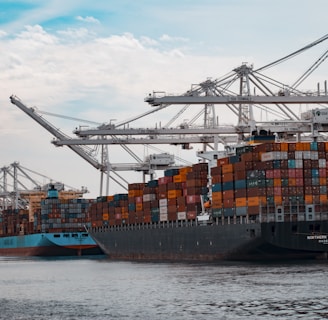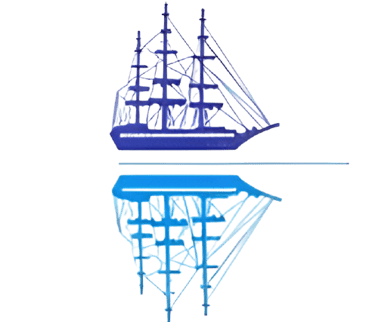A Comprehensive Guide to Exporting Moroccan Seafood: Legal Requirements, Documentation, and Certification Standards
6/6/20255 min read


Understanding the Legal Framework for Exporting Seafood from Morocco
Exporting seafood from Morocco requires a comprehensive understanding of the legal framework that governs this industry. The primary legislation is set forth by the Moroccan Ministry of Agriculture and Fisheries, which implements various national laws aimed at ensuring the sustainability of marine resources and protecting public health. These laws encompass regulations regarding fishing quotas, permissible fishing methods, and the overall management of marine ecosystems. Compliance with these laws is essential for exporters to avoid penalties that can range from fines to the suspension of export licenses.
At the international level, Moroccan seafood exporters must adhere to regulations established by the Food and Agriculture Organization (FAO). These regulations include guidelines focused on food safety standards, traceability, and the conservation of marine species. The alignment of Moroccan seafood practices with these international standards is critical, particularly for exports targeting markets in the European Union and North America, which impose stringent requirements on imported seafood products.
Moreover, additional certifications may be required, depending on the destination of the seafood. For instance, exporters may need to secure Health Certificates, which confirm that the seafood products are safe for consumption and meet the sanitary and phytosanitary standards outlined by the importing country. It is important to remain updated with changes in legislation and regulations, as they frequently evolve, necessitating regular review and adaptation of export practices.
In navigating the regulatory landscape, exporters are encouraged to seek guidance from legal experts or industry associations that specialize in maritime and trade law. This proactive approach can help ensure compliance, reduce the risk of non-compliance penalties, and ultimately facilitate smoother international trade operations. Understanding these legal requirements is not merely a matter of compliance but also a fundamental aspect of fostering sustainable business practices within the Moroccan seafood export sector.
Essential Documentation for Seafood Exporters
Exporting seafood from Morocco requires adherence to specific legal guidelines and the submission of various essential documents. These documents are crucial for ensuring compliance with international trade protocols and guaranteeing the safety and quality of the seafood being exported. Key documentation includes export licenses, health certificates, and customs declarations.
Firstly, an export license is usually mandatory for seafood exporters. This license is granted by the relevant Moroccan authorities and serves as proof that the exporter is authorized to engage in international trade. Obtaining this license involves submitting an application along with the necessary documentation to the Ministry of Agriculture or corresponding governmental body responsible for fisheries.
Secondly, health certificates play an integral role in the export process. These documents certify that the seafood products meet international health and safety standards. They are issued by the National Fisheries Office in Morocco, following comprehensive inspections of the seafood products and their processing facilities. Regular inspections and adherence to hygienic practices are critical for maintaining the validity of health certificates.
Customs declarations are another vital document that seafood exporters must prepare. This declaration provides detailed information regarding the goods being exported, including quantity, value, and destination. Accurate customs declarations help prevent delays at borders and facilitate smoother transactions with customs authorities in the importing country.
To ensure a smooth export process, it is advisable for exporters to maintain thorough records of all transactions and related documentation. This documentation can include invoices, packing lists, and shipping receipts. Staying organized not only aids in quicker compliance during inspections but also enhances the credibility of the exporting business.
International buyers should verify these documents to ensure legitimacy. They can request copies of the export licenses and health certificates, and may even consult local authorities or online resources to cross-check the credibility of the seafood exporter. By following these outlined steps, seafood exporters can facilitate efficient trade practices while ensuring that all legal requirements are met.
Certification Standards: Ensuring Quality and Compliance
In the competitive landscape of international seafood trade, certification standards play a pivotal role in ensuring the quality and compliance of Moroccan seafood products. International buyers often seek products that meet established standards, thereby increasing the marketability of these goods. Notable certifications include Friend of the Sea, Halal, and Kosher, each serving a distinct purpose and catering to different consumer demographics.
Friend of the Sea certification is a prominent recognition for sustainable fishing practices. To obtain this certification, Moroccan seafood exporters must demonstrate adherence to environmental standards throughout their production processes. This includes showing that their fishing methods do not deplete fish stocks or harm marine ecosystems. The appeal of such certification lies in its ability to attract environmentally-conscious consumers who prioritize sustainability in their purchasing decisions.
Halal certification, on the other hand, addresses the requirements of Muslim consumers. For seafood to be labeled Halal, exporters must ensure that the products meet specific slaughter and processing standards in accordance with Islamic law. This not only broadens the market potential for Moroccan seafood but also enhances its credibility amongst a significant segment of consumers globally. Exporters may face challenges in proving compliance with these religious and ethical standards, which necessitates thorough understanding and management throughout the supply chain.
Kosher certification serves a similar purpose, aimed at consumers adhering to Jewish dietary laws. This certification process involves rigorous scrutiny of the entire supply chain, often necessitating the involvement of a rabbi or a qualified authority to supervise production and ensure it aligns with Kosher standards. For exporters, securing Kosher certification can both open up new markets and reinforce trust with buyers who seek high-quality, compliant products.
In summary, attaining these certification standards not only ensures quality and compliance but also significantly impacts the marketability of Moroccan seafood products. By understanding the various certifications and addressing potential challenges, exporters can better position themselves in the international seafood market while appealing to a diverse consumer base.
Making Your Moroccan Seafood Export-Ready: Best Practices for International Buyers
As international buyers seeking to import Moroccan seafood, understanding best practices is crucial to ensure that the products you acquire meet both quality standards and market demands. One of the first aspects to focus on is quality assurance. It is vital to assess the seafood products based on freshness, taste, and sustainability. Engaging with certified quality management systems, such as Hazard Analysis Critical Control Points (HACCP), can significantly enhance product credibility.
Understanding market demands is equally important. Researching consumer preferences in your target market allows you to tailor your offerings effectively. For instance, certain markets may favor specific seafood varieties or require organic certifications. Keeping abreast of trends can help you identify potential gaps and opportunities within your market.
Another significant consideration is the importance of sustainable sourcing. Establishing partnerships with local fisheries that prioritize environmentally-friendly practices can not only enhance your brand reputation but also contribute to the conservation of marine biodiversity. Buyers should ensure that their suppliers are compliant with local and international sustainability standards, ensuring a long-term, ethical supply chain.
Building strong relationships with local suppliers is essential in navigating the complexities of Moroccan seafood exports. Communication and trust can pave the way for smoother transactions and better price negotiations. Regular visits to your suppliers can help you establish rapport and gain deeper insight into their operations, fostering a relationship built on transparency.
Furthermore, international buyers must be aware of cultural nuances in Moroccan business practices. Understanding local customs, negotiation styles, and business etiquette can significantly enhance communication and limit misunderstandings. Adapting to these cultural dimensions can facilitate stronger partnerships and ensure successful collaborations.
In conclusion, applying these best practices—focusing on quality assurance, understanding market demands, prioritizing sustainability, building supplier relationships, and respecting cultural nuances—will empower international buyers to secure high-quality Moroccan seafood products, ultimately leading to successful importation and long-term profitability.
Socials
Committed to quality seafood and global standards.
Contacts
+212 528 241 415
© 2025. All rights reserved.
